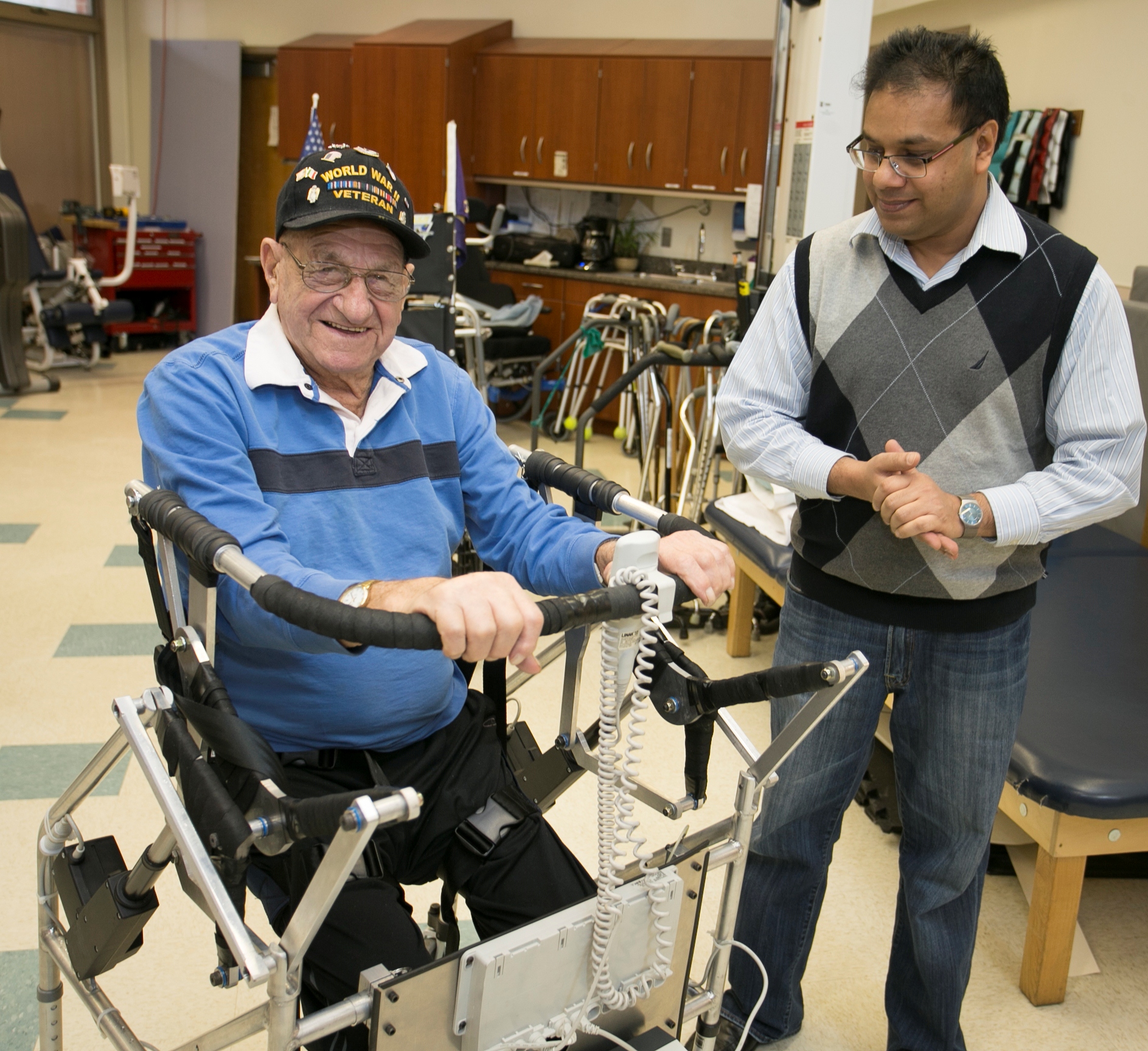New York Company Reaches Licensing Agreement with SUNY, Research Foundation

Governor Andrew M. Cuomo today announced a licensing agreement between the Research Foundation for SUNY and Biodex Medical Systems for Mobility Assist, a device that was patented at Stony Brook University (SBU) that will help people who have trouble standing up or sitting down become more independently mobile.
“Having a New York company bring to market a life-changing product designed at our own SUNY system is the perfect example of what our state’s innovation agenda can achieve,” Governor Cuomo said. “Professor Purwar is emblematic of the intellectual capital at SUNY where talented students, faculty and researchers are developing cutting edge ideas in the classroom and laboratory that can become marketable assets and spur economic growth. There is boundless potential on SUNY’s campuses, and we want to continue to harness that asset to build new businesses, attract private investment and create jobs right here in New York State.”
Mobility Assist, which will be manufactured at the Biodex plant in Shirley, New York and be available to patients in 2014, is a patented invention of Anurag Purwar, a researcher and associate professor of mechanical engineering at SBU. The device – which also serves as a walker – will be marketed to physical and occupational therapists as well as assisted living facilities, hospitals, and nursing homes to increase mobility among patients and residents.
“Dr. Purwar’s Mobility Assist is the newest life-changing invention to be imagined on a SUNY campus, given the room to grow through support from one of our Research Foundation programs, and ultimately brought to market by one of SUNY’s public-private partnerships,” said SUNY Chancellor Nancy L. Zimpher. “This agreement truly embodies the Power of SUNY. Congratulations to Dr. Purwar and many thanks to those at SBU, the RF, and Biodex who have made this achievement possible.”
“This successful transition of technology from the lab to the marketplace is the product of dedicated research, industry-university collaboration, and creative funding programs that foster faculty research and support innovation,” said Dr. Tim Killeen, RF president and SUNY vice chancellor for research. “Investments in cutting edge SUNY technologies continue to generate business and jobs for New York and benefit its citizenry.”
Stony Brook president Samuel L. Stanley Jr., M.D., said, “Anurag’s idea led to the Mobility Assist, a solution engineered in his lab and in collaboration with the Long Island State Veterans Home on the Stony Brook campus. With the help of the Stony Brook Research Office and the SUNY Research Foundation, this important product was quickly brought to market. I am encouraged that it was fast tracked through the licensing process, because it is an invention that will serve a large population of people whose ability to get around will be greatly enhanced.”
Dr. Purwar’s idea began with a challenge presented to him by a friend, Dr. Hari B. Pillai, who didn’t have the strength to lift himself out of a chair to utilize his walker. Dr. Purwar acknowledged the help and support of his friend, whose problem his lab initially set out to solve.
“It is due to Dr. Pillai’s patience and input that we were able to go through this exercise,” he said. “I would also like to acknowledge the hard work of my former graduate student Thomas Galeotafiore, also my co-inventor on one of the two patents related to this device, who diligently prototyped an earlier device. I feel incredibly lucky to have worked on designing a device, which could potentially transform the lives of people unable to raise themselves from a seated position.”
Two RF programs contributed to the creation of Mobility Assist. In 2012, Dr. Purwar received a $50,000 award from the SUNY Technology Accelerator Fund (TAF) to prototype the device, and secured a $30,000 match in support from the New York State Strategic Partnership for Industrial Resurgence (SPIR) program, with the Center for Biotechnology and Biodex.
Using those funds, Dr. Purwar and his team at SBU worked with Biodex to conduct a mechanical functional design review and collect customer feedback by testing the original design at three health care facilities. Physical therapists, occupational therapists, and patients shared their ideas throughout the process to identify ways that Mobility Assist could be more comfortable and useful for its users.
“Customers who will use Mobility Assist represent a growing market, and Biodex already sells other devices for people with limited mobility,” said Ed Behan, the company’s vice president of market development. “This is a nice progression for some of the products that we already have in that area.”

